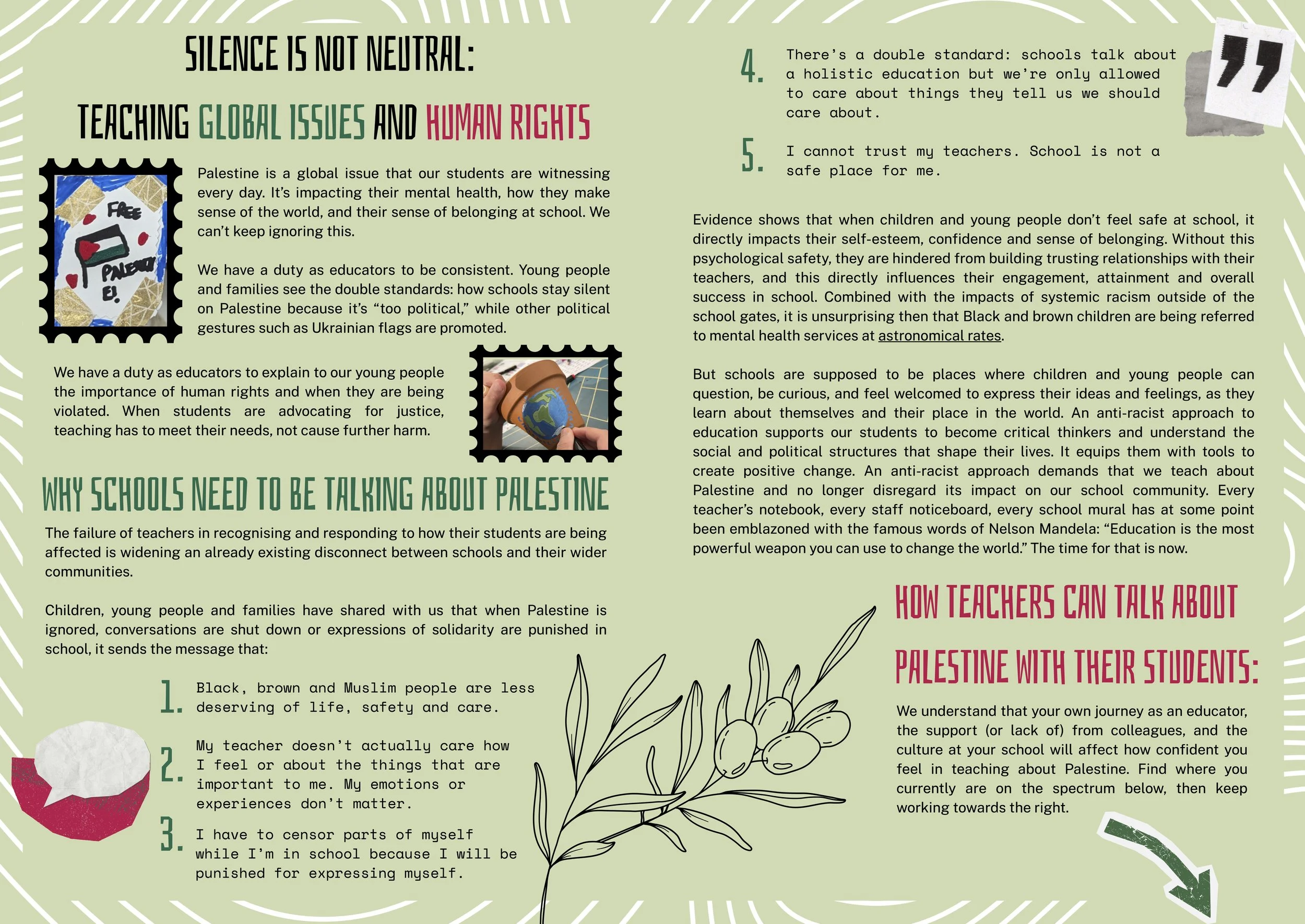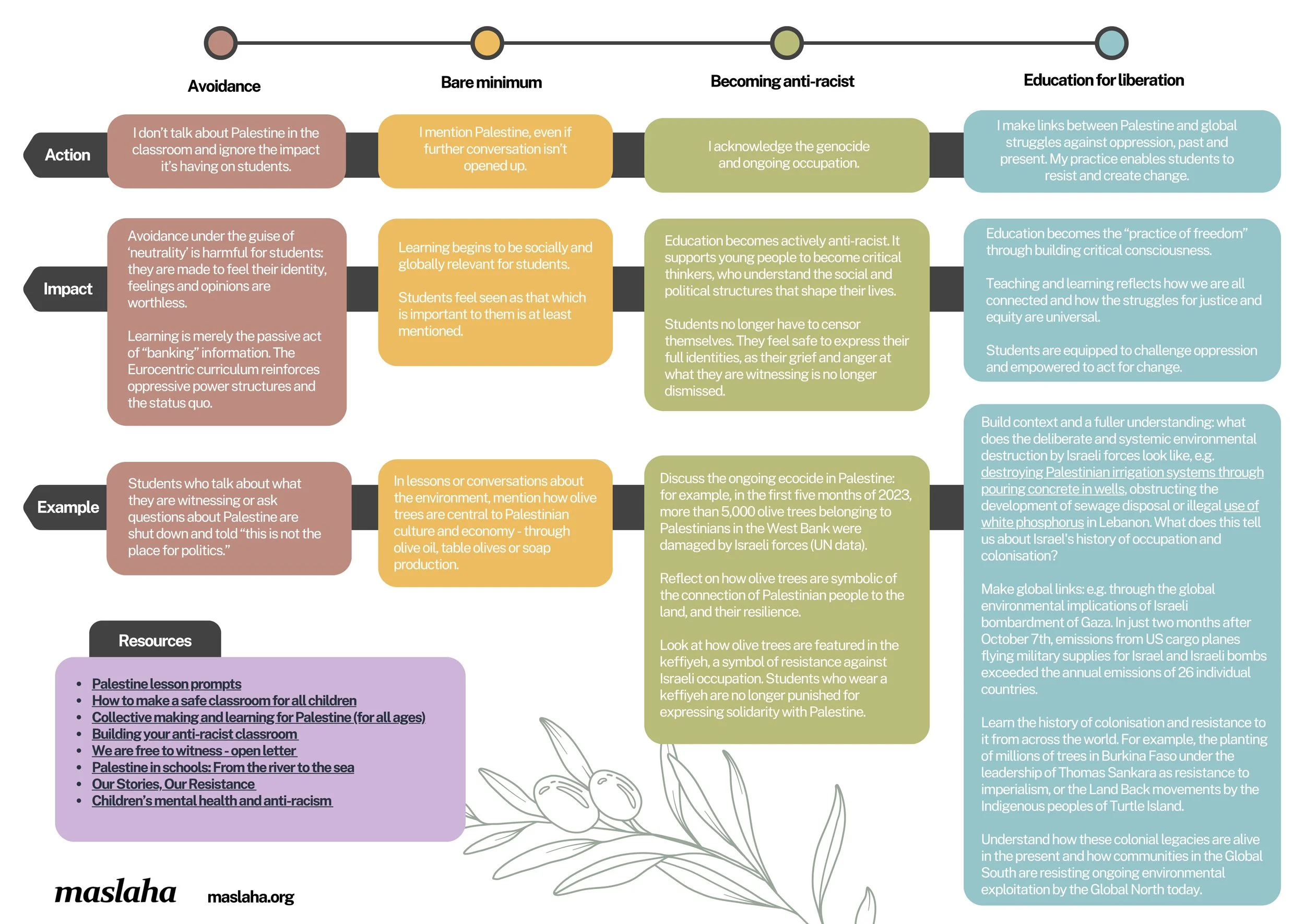Silence is not neutral: Teaching global issues and human rights
Young people are witnessing human rights violations unfold on their phones, hearing from several humanitarian organisations and news outlets about mass civilian deaths, starvation, and children being bombed in Palestine. But when they come to school grieving, asking questions, and wanting to speak out against injustice, they’re being silenced. They're told that school is not the place for these conversations.
As educators, we have a duty to help our students make sense of injustice. How long will schools choose silence under the guise of being "neutral"? Ignoring what’s happening in Palestine and how it impacts our students is damaging their sense of belonging at school, making them feel like they cannot trust the teachers who are meant to care for them.
This resource offers practical guidance for teachers to open up conversations around Palestine in the classroom and support students who are speaking up for human rights.
“Washing one’s hands of the conflict between the powerful and the powerless means to side with the powerful, not to be neutral.” — Paulo Freire, “Pedagogy of the Oppressed”


